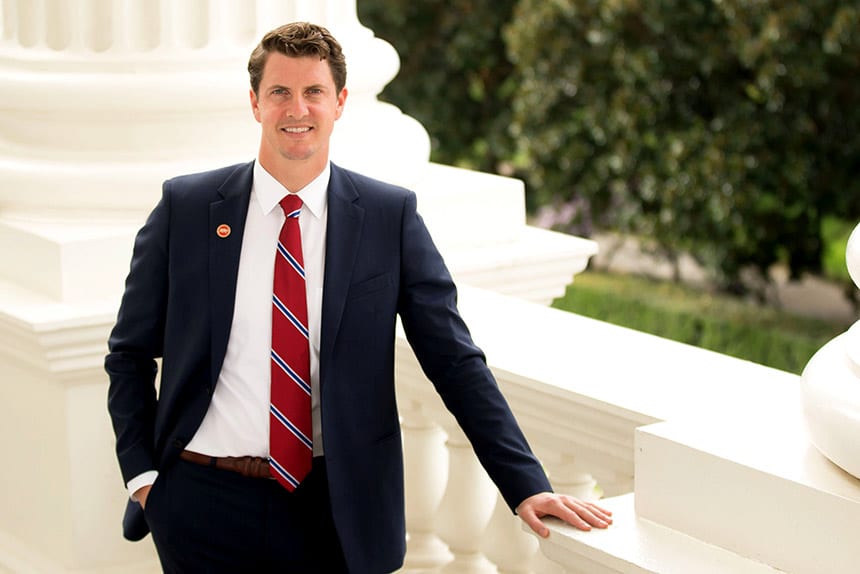
INSIGHT
By Senator Henry Stern ’09
Sitting in Con Law in 2007, listening to then-Professor Goodwin Liu impart the tricky tensions of federalism, I had no idea these lessons would become so valuable to preserving progress a decade later.
After the divisive 2016 national election, California finds itself girding for battle with Washington. At risk are rollbacks of billions of dollars in federal funding, as well as rules, regulations, and laws that protect our health, environment, civil rights, and safety.
 The Constitution provides many tools—the anti-commandeering doctrine, dormant Commerce Clause, preemption limits under the Supremacy Clause—to help states chart their paths forward, undisturbed. Nevertheless, the often porous boundaries between state and federal authority will be tested on many fronts in the coming years, with California likely at the tip of the spear.
The Constitution provides many tools—the anti-commandeering doctrine, dormant Commerce Clause, preemption limits under the Supremacy Clause—to help states chart their paths forward, undisturbed. Nevertheless, the often porous boundaries between state and federal authority will be tested on many fronts in the coming years, with California likely at the tip of the spear.
As the Senate’s resident environmental lawyer, I’m working with Senator (and former Boalt classmate) Ben Allen, and Senate President pro Tempore Kevin de León, to make federal environmental and worker safety regulation enforceable as a matter of state law. Senate Bill 49 would erect a “green wall” of sorts.
By requiring state environmental, public health, and worker safety agencies to take all actions within their authorities to ensure that federal standards enacted during the Obama Administration remain enforceable in California, SB 49 would prevent the Trump Administration from administratively undermining them by mere federal fiat, without an expressly preemptive act of Congress.
While California has some of the nation’s strongest environmental policies, it relies on an overlapping network of state and federal rules.
For example, the Clean Air Act enables California to regulate air pollution caused by vehicles more strictly than the federal government. Yet comments from the new Administrator of the Environmental Protection Agency convey a desire to deny California its “waiver authority.”
Just as California continues to resist federal interventions in its approach to health care and immigration, California lawmakers will work diligently to preserve the environmental quality of life our residents expect regardless of the change of perspective in Washington.
As Justice Louis Brandeis memorably observed in his landmark dissent in New State Ice Co. v. Liebmann, “a single courageous State may, if its citizens choose, serve as a laboratory; and try novel social and economic experiments without risk to the rest of the country.”
California has the courage, but whether the federal government—administratively or congressionally—decides to turn federalism on its head and preempt states’ rights to be as progressive as they choose remains the critical open question.